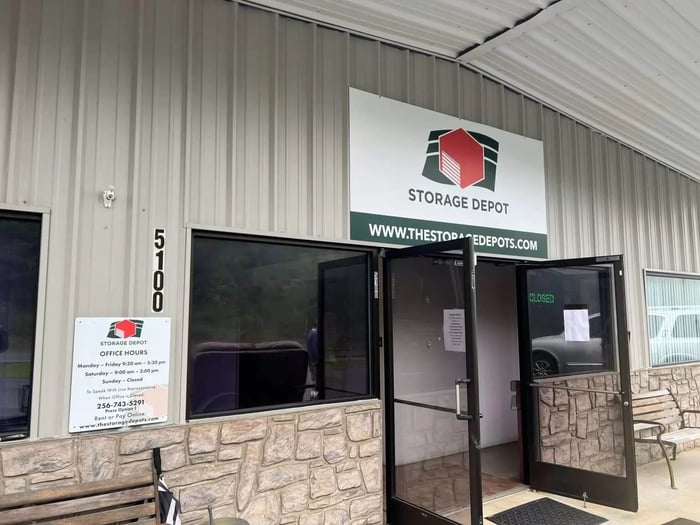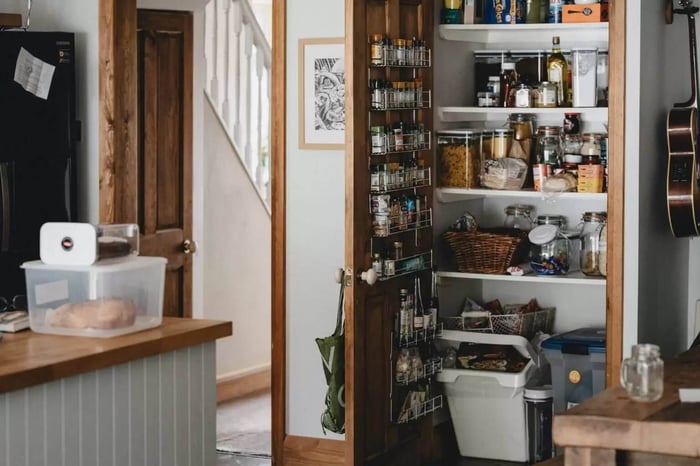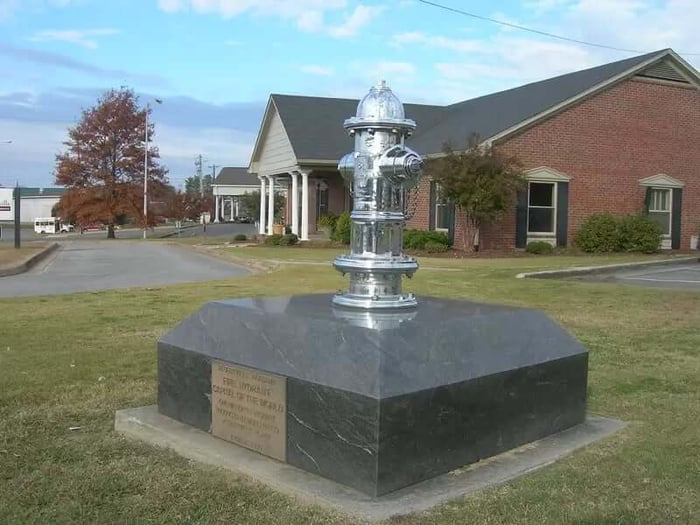Selecting the right storage unit can often feel like navigating a maze. With an array of options available, each boasting its unique features, how does one pinpoint the ideal choice? Whether you’re safeguarding cherished memorabilia, stashing away business inventory, or merely creating space in your home, the right storage solution can make all the difference. Enter Storage Depot, your trusted partner in the eastern US, dedicated to offering a diverse range of storage facilities tailored to meet individual requirements. In this comprehensive guide, we’ll delve into the advantages and disadvantages of various storage units, from the cozy confines of indoor units to the specialized environment of climate-controlled spaces. Let’s embark on this journey to discover the perfect storage sanctuary for your possessions.
Indoor Storage Units
What are Indoor Storage Units? Indoor storage units are essentially spaces situated within a larger building, providing an added layer of protection against the external environment. Think of them as rooms within a vast, secure building, tailored specifically for storage.
Pros of Indoor Storage Units
Enhanced Protection: Being indoors means these units offer better defense against harsh weather conditions — be it intense sun, rain, or snow.
Clean Environment: With less direct exposure to the outside, there’s a decreased chance of dust and debris accumulation, ensuring your items remain clean.
Security: Often, indoor units benefit from added security features due to being inside a building, such as surveillance cameras in hallways or secured access points.
Cons of Indoor Storage Units
Access: You might have to walk through hallways or use elevators, making it slightly less convenient than drive-up options, especially for bulky items.
Cost: Typically, indoor storage units might be a tad pricier than outdoor units due to the enhanced protection they provide.
Best For: Indoor storage units are ideal for valuables, delicate items, electronics, clothing, and important documents. If you’re seeking a blend of security and protection from the elements, these units can be a sterling choice.
Drive-Up Storage Units
What are Drive-Up Storage Units? Drive-up storage units function much like a personal garage. Accessible directly from outside, they allow you to drive your vehicle right up to the unit’s door, offering unparalleled ease when it comes to loading and unloading your possessions.
Pros of Drive-Up Storage Units
Convenience: The primary benefit is the ease of access. You can effortlessly transfer items between your vehicle and the unit without the need to navigate hallways or elevators.
Efficiency: Perfect for those who need regular access to their stored items, especially larger pieces or equipment.
Size Variety: Drive-up units often come in an array of sizes, catering to various needs – from stowing away a few boxes to housing an entire household’s worth of belongings.
Cons of Drive-Up Storage Units
Weather Exposure: These units are directly exposed to external weather conditions, which might not be ideal for items that are sensitive to extreme temperatures or moisture.
Security: While they are secure, drive-up units might not offer the same level of security layers as indoor units, simply due to their exterior positioning.
Best For: Drive-up units shine when storing larger items such as furniture, vehicles, or equipment. They’re also ideal for those who might be in the midst of moving or require frequent access to their possessions without any hassle.
Temperature-Controlled Storage Units
What sets Temperature-Controlled Units Apart? Unlike regular storage units, temperature-controlled spaces are specifically engineered to maintain a consistent temperature range. This stability shields your items from extreme cold or heat, ensuring they remain in prime condition.
Pros of Temperature-Controlled Storage Units
Consistent Environment: Fluctuating temperatures can damage certain items. With these units, the risk of such damage is significantly reduced.
Versatility: They can cater to a wide array of items, especially those sensitive to temperature variations.
Long-Term Storage: For belongings that will be stowed away for extended periods, a stable temperature can be crucial in preserving their integrity.
Cons of Temperature-Controlled Storage Units
Cost: The technology and energy used to maintain the consistent temperature mean these units can be pricier than their non-temperature-controlled counterparts.
Accessibility: Depending on the facility’s layout, these units might be indoor, requiring a bit more effort to access compared to drive-up units.
Best For: Temperature-controlled units are a must for items like wine collections, certain artworks, musical instruments, electronics, and antiques. Any item that can warp, crack, degrade, or get damaged due to temperature fluctuations would benefit from this environment.
Climate-Controlled Storage Units
What Defines Climate-Controlled Units? Beyond just temperature, climate-controlled storage units manage both temperature and humidity levels. This dual regulation provides an environment that closely mirrors the conditions of a typical indoor space, irrespective of external weather conditions.
Pros of Climate-Controlled Storage Units
Dual Regulation: By managing both temperature and humidity, these units offer a superior protection level against potential damage caused by moisture or extreme temperatures.
Protection Against Moisture: A controlled humidity level minimizes the risk of mold, mildew, and wood warping – issues commonly faced in areas with high humidity.
Enhanced Comfort: For those who visit their storage units frequently, a climate-controlled environment can be a comfortable space to work in or sort through items.
Cons of Climate-Controlled Storage Units
Pricing: Given the advanced technology needed to control both temperature and humidity, these units are generally more expensive than other types.
Limited Availability: Not every storage facility offers climate-controlled units, so they might be less widespread in certain areas.
Best For: Perfect for sensitive items like leather goods, electronics, paper documents, photographs, and wood furniture. If you’re storing items that could be affected not just by temperature but also by humidity, a climate-controlled unit is your best bet.
Things to Consider Before Choosing a Storage Unit
Choosing the right storage unit isn’t merely about size or location; it involves a comprehensive understanding of both your items and the unique features each storage type offers. Before making a commitment, ponder over the following considerations: Nature of Items: Begin by assessing what you intend to store. Are your items sensitive to temperature, humidity, or both? Delicate goods like art, electronics, or important documents might require specialized environments, such as climate or temperature-controlled units.
Frequency of Access: How often do you foresee accessing your storage? If regular visits are on the cards, a drive-up unit might be your best bet for convenience.
Duration of Storage: Short-term storage might not necessitate advanced features, but if you’re looking at a year or more, factors like temperature stability become vital.
Budget Constraints: While specialized storage solutions offer numerous benefits, they come at a cost. Balance your budget with your needs, ensuring you’re not overpaying for features you don’t require.
Security: Ensure the facility offers adequate security measures, from surveillance cameras to access controls. Peace of mind is priceless.
Location: Is the storage facility conveniently located? If you’re going to access your belongings frequently, choosing a facility closer to your home or workplace might be ideal.
Reviews & Recommendations: Look for reviews online or seek recommendations. A storage facility with a solid reputation is likely to provide a hassle-free experience.
Remember, every storage need is unique, and what works for one individual might not for another. Taking the time to evaluate your specific requirements will ensure that you select the perfect unit, tailored to your needs. At Storage Depot, our team is always on hand to guide you through the selection process, ensuring you find the optimal space for your valuables within our vast array of facilities in the eastern US.
Navigating Your Storage Needs with Confidence
Storage isn’t just about space—it’s about ensuring the safety, security, and longevity of your prized possessions. Whether you require the convenience of a drive-up unit or the specialized care of a climate-controlled space, understanding the nuances of each storage type is vital. With the diverse options available, you’re empowered to make a choice that aligns perfectly with your requirements and budget. Storage Depot is more than just a storage facility; we’re your trusted partner in safeguarding what matters most to you. Our extensive presence in the eastern US, combined with a diverse range of storage solutions, places us at the forefront of catering to every unique storage need. Ready to find your ideal storage solution? Reach out to Storage Depot today and discover the difference of tailored, secure, and convenient storage spaces.




